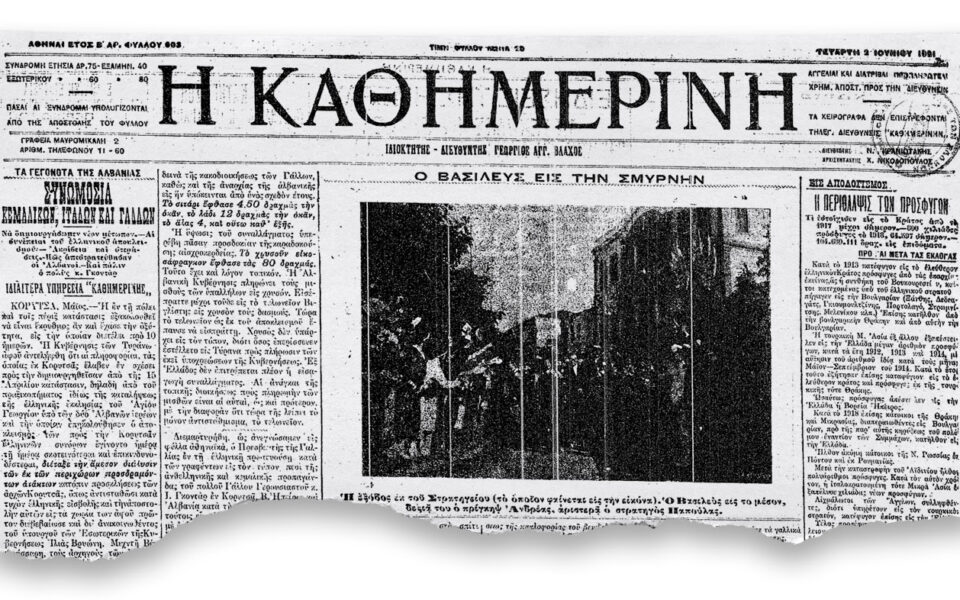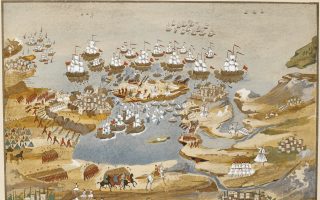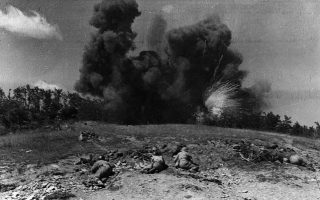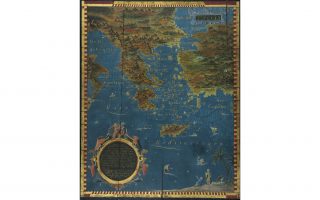Division has not disappeared from our DNA

Looking back, you sometimes wonder how this country survived and grew. Reading editions of Kathimerini from 1922, you are shocked by the passion and hatred for the rival political party and its leader. Someone who read it without knowing what was going on in those days would easily conclude that the war was being waged not in Asia Minor, but here, among us. Greeks against Greeks.
Obviously, intolerance was not something that characterized only one side of the political divide. There was hatred and prejudice on both sides.
Historians are the ones who can explain the phenomenon and analyze the role that division played in the national disaster, because the rift was gnawing away at the ranks of the Greek army. It never allowed the country to seriously discuss its choices in relation to Asia Minor. Every politician was afraid of the other, that he would call him a traitor or incompetent. The government did not speak to the opposition. The political order operated on the dog-eat-dog principle.
It is not an easy or pleasant subject. And what interests the present-day Greek, Kathimerini reader or not, is probably not whether Kathimerini’s political slant from 100 years ago was correct, wrong or simply excessive. It is a nice topic for discussion but the question is what we do today.
Division has not disappeared from our DNA. On the contrary, it gushes out with every great crisis. Our political game is always fierce, but fortunately it is now bloodless and does not cross the line. The hegemony of social media, however, often pushes us over the edge with the crassness, the unbridled division.
That’s why it’s important to think about the mistakes of the past. The pressure is sometimes unbearable – not only from the fanatics who are not satisfied with the sharp criticism of the other side and want “more.” Often, the instinct pushes you to respond in kind, swearing at those who swear, screaming at those who scream. It happened in 2015, for example. But those of us who participate in the public debate here have an obligation at the end of the day to think about the country and the day that will follow a political “quarrel.”
Burning all bridges and creating a mess is easy. Picking up the pieces the next day is not. Therefore, it is important that we do not cross any red lines, that the government and the opposition maintain an open line of communication, that we know that, if necessary, we can sit at the same table and come to an agreement.





